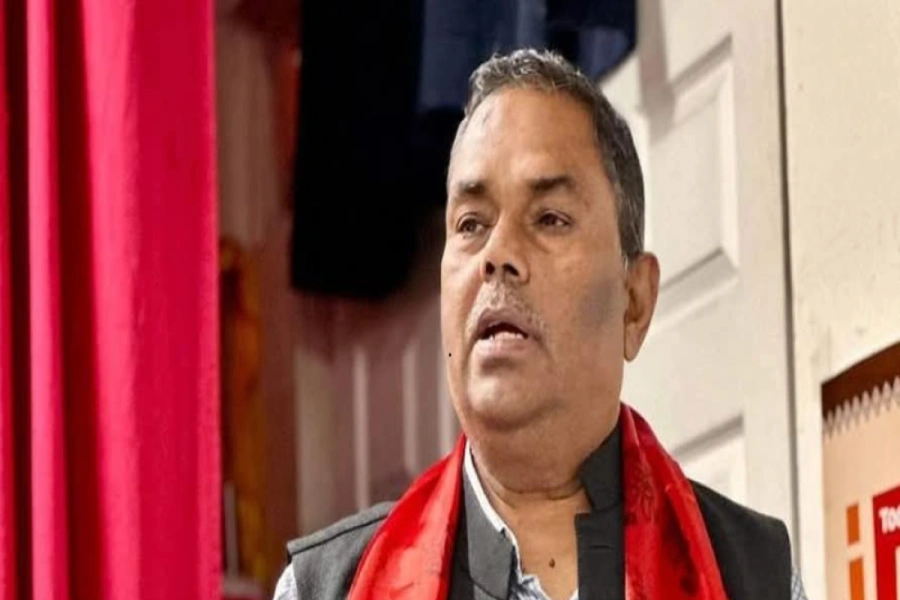#Oli’s China visit
KATHMANDU, June 25: Prime Minister KP Oli arrived home on Sunday, concluding his six-day official visit to China. Although there was high optimism in Nepal about his visit to the northern neighbor this time, Prime Minister Oli has largely failed to live up to the expectations.
Prime Minister Oli’s visit to China – the second in two years – came after the successful conclusion of the protracted political transition in Nepal and the formation of a historically powerful government commanding over a two-thirds majority in parliament. Not surprisingly, there was expectation that the two countries would be able to expedite the implementation of many of the landmark agreements reached between Nepal and China during Oli’s previous stint as the prime minister.
But this could not happen except for the signing of dozens of new Memorandums of Understanding (MoUs) and Letters of Exchange (LoEs) and various agreements including one on cooperation for a feasibility study of a Nepal-China cross-border power grid interconnection project and railway connectivity with China. Many doubt if these deals will be implemented any time soon, given that they are little more than “agreements in principle”.
Oli takes swipe at Balen Shah over alleged substance abuse

Upon his arrival at Tribhuvan International Airport from China on Sunday, Prime Minister Oli termed the signing of the MoU on Cooperation for Railway Connectivity with China as an important achievement of his visit. The MoU has certainly paved the way for bringing train to Nepal, but since the time frame and the funding modality remain unclear, there is still no certainty that the project will take off any time soon.
Responding to a query by journalists, Prime Minister Oli said they would take a decision on the railway not in haste but in a methodical fashion, alluding that there were many issues yet to be resolved. On the issue of funding the project, Oli maintained that those who have money will be investing in it.
“Those who do not have money cannot make any investment,” the prime minister said. Nepal has been asking China to build the rail link through grant funding — something the Chinese side is yet to give its nod to.
Although the visit by Prime Minister Oli saw several deals to bring Chinese investors in Nepal’s hydropower and manufacturing sectors and cross-country power transmission line project, the implementation of some of the key issues that Nepal sought to expedite failed to make any headway. One such agreement was the Protocol of Transit and Transport. Nepal wanted to see a breakthrough in the protocol of Transit and Transport.
Prime Minister Oli himself said that the two countries would be able to sign it by July. But there are no concrete grounds yet to be fully assured that the contentious issues in it will be resolved that soon and that easily, especially in view of the fact that bilateral negotiations on this issue for the past few years at various levels have failed to make any breakthrough.
Oli became prime minister for the first time in 2015 when India had imposed an unofficial economic embargo on Nepal, apparently to put pressure on the ruling parties to bring amendments to the constitution to address its concerns. This had caused an acute shortage of daily essentials and fuel in Nepal.
During his previous visit to China in March, 2016 against the backdrop of the months-long Indian economic embargo, Prime Minister Oli had reached an agreement to import at least one third of the fuel consumed in Nepal from China to avoid a similar fuel scarcity in the future. This issue did not figure during the visit of Prime Minister Oli this time.
It is equally surprising that there was also no mention of any trilateral cooperation despite the fact that Nepal’s political leadership has been making a rhetoric of transforming Nepal as a bridge between India and China. There are also complaints that the Nepali side failed to reiterate its position on Lipu Lek and other outstanding border disputes.
As Prime Minister Oli seems desperate to mend his once-troubled relations with India after his ascent to power after the elections, there are concerns that Nepal could be further pushed away from China. Whether Prime Minister Oli has grown more pragmatic or he is just willing to appease India is something that needs to be seen in the days ahead.





































